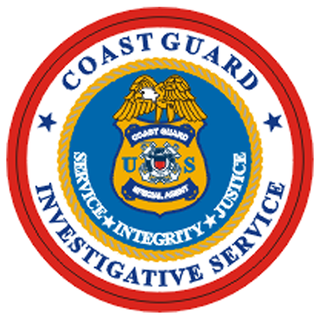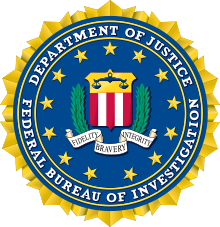A felony is traditionally considered a crime of high seriousness, whereas a misdemeanour is regarded as less serious. The term "felony" originated from English common law to describe an offense that resulted in the confiscation of a convicted person's land and goods, to which additional punishments including capital punishment could be added; other crimes were called misdemeanors. Following conviction of a felony in a court of law, a person may be described as a felon or a convicted felon.

The Racketeer Influenced and Corrupt Organizations (RICO) Act is a United States federal law that provides for extended criminal penalties and a civil cause of action for acts performed as part of an ongoing criminal organization.

Identity theft occurs when someone uses another person's personal identifying information, like their name, identifying number, or credit card number, without their permission, to commit fraud or other crimes. The term identity theft was coined in 1964. Since that time, the definition of identity theft has been statutorily defined throughout both the U.K. and the U.S. as the theft of personally identifiable information. Identity theft deliberately uses someone else's identity as a method to gain financial advantages or obtain credit and other benefits, and perhaps to cause other person's disadvantages or loss. The person whose identity has been stolen may suffer adverse consequences, especially if they are falsely held responsible for the perpetrator's actions. Personally identifiable information generally includes a person's name, date of birth, social security number, driver's license number, bank account or credit card numbers, PINs, electronic signatures, fingerprints, passwords, or any other information that can be used to access a person's financial resources.

The Brady Handgun Violence Prevention Act, often referred to as the Brady Act or the Brady Bill, is an Act of the United States Congress that mandated federal background checks on firearm purchasers in the United States, and imposed a five-day waiting period on purchases, until the National Instant Criminal Background Check System (NICS) was implemented in 1998. The act was appended to the end of Section 922 of title 18, United States Code. The intention of the act was to prevent persons with previous serious convictions from purchasing firearms.

The Bureau of Alcohol, Tobacco, Firearms and Explosives (BATFE), commonly referred to as the ATF, is a domestic law enforcement agency within the United States Department of Justice. Its responsibilities include the investigation and prevention of federal offenses involving the unlawful use, manufacture, and possession of firearms and explosives; acts of arson and bombings; and illegal trafficking and tax evasion of alcohol and tobacco products. The ATF also regulates via licensing the sale, possession, and transportation of firearms, ammunition, and explosives in interstate commerce. Many of the ATF's activities are carried out in conjunction with task forces made up of state and local law enforcement officers, such as Project Safe Neighborhoods. The ATF operates a unique fire research laboratory in Beltsville, Maryland, where full-scale mock-ups of criminal arson can be reconstructed. The ATF had 5,285 employees and an annual budget of almost $1.5 billion in 2021. The ATF has received criticism over the Ruby Ridge controversy, the Waco siege controversy and others.
Mandatory sentencing requires that offenders serve a predefined term of imprisonment for certain crimes, commonly serious or violent offenses. Judges are bound by law; these sentences are produced through the legislature, not the judicial system. They are instituted to expedite the sentencing process and limit the possibility of irregularity of outcomes due to judicial discretion. Mandatory sentences are typically given to people who are convicted of certain serious and/or violent crimes, and require a prison sentence. Mandatory sentencing laws vary across nations; they are more prevalent in common law jurisdictions because civil law jurisdictions usually prescribe minimum and maximum sentences for every type of crime in explicit laws.
A law enforcement officer (LEO), or peace officer in North American English, is a public-sector or private-sector employee whose duties primarily involve the enforcement of laws, protecting life & property, keeping the peace, and other public safety related duties. Law enforcement officers are designated certain powers & authority by law to allow them to carry out their responsibilities.

The Firearm Owners' Protection Act (FOPA) of 1986 is a United States federal law that revised many provisions of the Gun Control Act of 1968.

The Coast Guard Investigative Service (CGIS) is a division of the United States Coast Guard that investigates crimes where the U.S. Coast Guard has an interest. It is composed of civilian (GS-1811), active duty, reserve enlisted, and warrant officer special agents.

National Incident-Based Reporting System (NIBRS) is an incident-based reporting system used by law enforcement agencies in the United States for collecting and reporting data on crimes. Local, state and federal agencies generate NIBRS data from their records management systems. Data is collected on every incident and arrest in the Group A offense category. These Group A offenses are 52 offenses grouped in 23 crime categories. Specific facts about these offenses are gathered and reported to NIBRS. In addition to the Group A offenses, 10 Group B offenses are reported with only the arrest information.
Title 18 of the United States Code is the main criminal code of the federal government of the United States. The Title deals with federal crimes and criminal procedure. In its coverage, Title 18 is similar to most U.S. state criminal codes, which typically are referred to by names such as Penal Code, Criminal Code, or Crimes Code. Typical of state criminal codes is the California Penal Code. Many U.S. state criminal codes, unlike the federal Title 18, are based on the Model Penal Code promulgated by the American Law Institute.
The United States Food and Drug Administration (FDA) Office of Criminal Investigations (OCI) provides the FDA with a specific office to conduct and coordinate its criminal investigations.

The Organized Crime Drug Enforcement Task Force (OCDETF) is a federal drug enforcement program in the United States, overseen by the Attorney General and the Department of Justice. The principal mission of the OCDETF program is to identify, disrupt, and dismantle the major drug trafficking operations and tackle related crimes, such as money laundering, tax and weapon violations, and violent crime, and prosecute those primarily responsible for the nation's drug supply.

Internal Revenue Service, Criminal Investigation (IRS-CI) is the United States federal law enforcement agency responsible for investigating potential criminal violations of the U.S. Internal Revenue Code and related financial crimes, such as money laundering, currency violations, tax-related identity theft fraud and terrorist financing that adversely affect tax administration. While other federal agencies also have investigative jurisdiction for money laundering and some Bank Secrecy Act violations, IRS-CI is the only federal agency that can investigate potential criminal violations of the Internal Revenue Code, in a manner intended to foster confidence in the tax system and deter violations of tax law. Criminal Investigation is a division of the Internal Revenue Service, which in turn is a bureau within the United States Department of the Treasury.

Financial crime is crime committed against property, involving the unlawful conversion of the ownership of property to one's own personal use and benefit. Financial crimes may involve fraud ; theft; scams or confidence tricks; tax evasion; bribery; sedition; embezzlement; identity theft; money laundering; and forgery and counterfeiting, including the production of counterfeit money and consumer goods.

The California Department of Justice is a statewide investigative law enforcement agency and legal department of the California executive branch under the elected leadership of the California Attorney General (AG) which carries out complex criminal and civil investigations, prosecutions, and other legal services throughout the US state of California. The department is equivalent to the State Bureau of Investigation in other states.
Operation Power Outage was a sting operation targeted at arresting and indicting members of the criminal group Armenian Power operating in the United States. The group is accused of racketeering offenses, bank fraud schemes, kidnappings, and drug trafficking. Armenian Power which originated 20 years ago in East Hollywood and has over 200 members, has developed from a street gang into an international criminal organization.

The Travel Act or International Travel Act of 1961, 18 U.S.C. § 1952, is a Federal criminal statute which forbids the use of the U.S. mail, or interstate or foreign travel, for the purpose of engaging in certain specified criminal acts.

Project Southern Tempest was a major U.S. Immigration and Customs Enforcement (ICE) operation conducted between December 2010 and February 2011 targeting transnational street gang members with ties to drug cartels in Mexico, as part of the ongoing law enforcement initiative known as Operation Community Shield.










